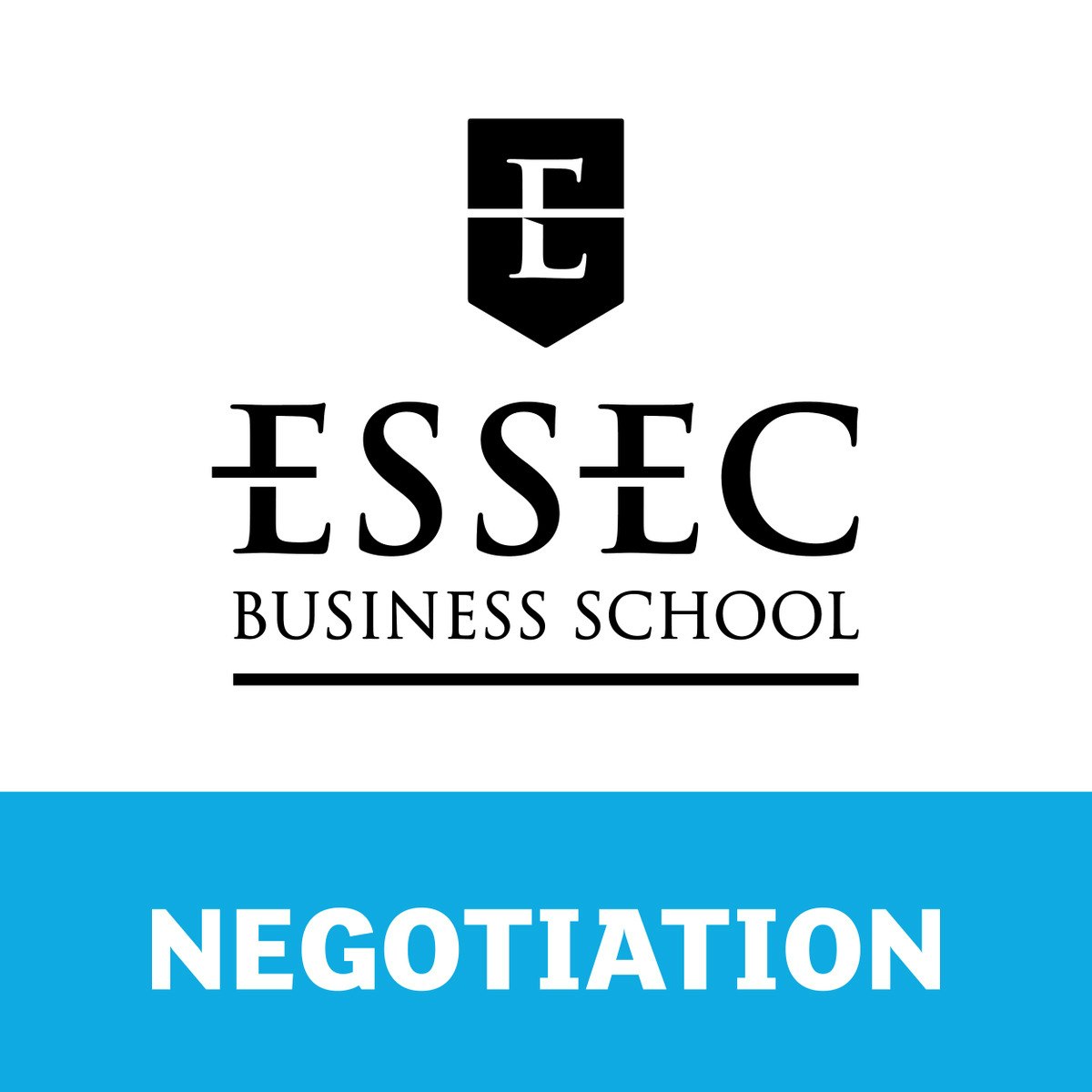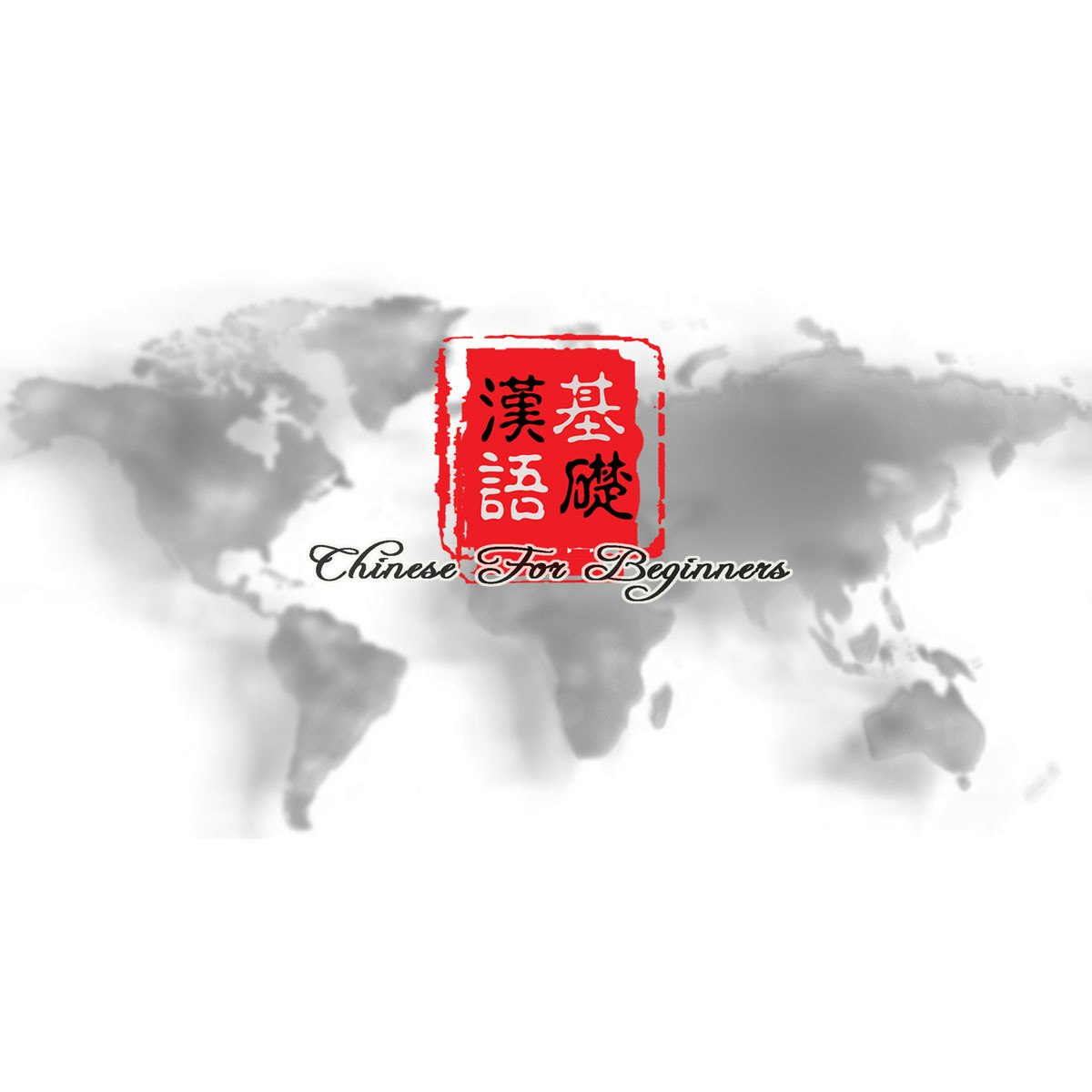International Business Consultant
International Business Consultant
An International Business Consultant advises companies on navigating the complexities of operating across national borders. They help organizations expand into new global markets, manage international operations more effectively, and overcome challenges related to different cultures, laws, and economic conditions. Essentially, they are problem-solvers and strategists focused on the unique aspects of global commerce.
Working in this field often involves developing strategies for market entry, optimizing global supply chains, advising on cross-cultural communication, and ensuring compliance with international trade regulations. The role demands a blend of analytical skill, cultural sensitivity, and strategic thinking, offering opportunities to engage with diverse business environments and tackle multifaceted global challenges.
Overview of International Business Consulting
What is International Business Consulting?
International Business Consulting involves providing expert advice to companies looking to operate or expand their business activities beyond their domestic market. The core objective is to help clients succeed in the global marketplace. This can range from identifying new international opportunities to improving the efficiency of existing multinational operations.
Consultants analyze international markets, assess risks, and develop strategies tailored to the client's goals and the specific target environment. They might guide a company through the process of setting up a foreign subsidiary, adapting a product for a different cultural context, or navigating complex international tax laws.
The work requires a deep understanding of global economics, trade dynamics, political landscapes, and cultural nuances. It's about connecting the dots between a company's capabilities and the vast potential, and pitfalls, of the international stage.
Key Differences from Domestic Consulting
While domestic business consulting focuses on challenges within a single country's market, international consulting adds layers of complexity. Consultants must consider variations in legal systems, political stability, economic conditions, and cultural norms across multiple countries. What works in one nation might fail dramatically in another.
Cross-cultural communication is paramount. International consultants must understand and bridge differences in negotiation styles, management practices, and consumer behavior. They often act as cultural interpreters for their clients, helping them avoid costly misunderstandings.
Furthermore, international consultants deal with issues like currency exchange fluctuations, international tariffs and trade agreements, differing labor laws, and global supply chain logistics. These factors significantly impact strategy and operations in ways not typically encountered in purely domestic projects.
Globalization's Impact and Demand
Globalization, the increasing interconnectedness of economies and cultures worldwide, has fueled demand for international business expertise. As companies increasingly seek growth beyond their home markets, the need for guidance on international strategy, market entry, and operations has surged.
Technological advancements in communication and transportation have made international business more feasible, but also more competitive. Companies need sophisticated strategies to navigate this complex global landscape, creating opportunities for consultants who specialize in international trade, finance, and market dynamics.
Trends like the rise of emerging markets, shifts in global trade policies, and the increasing importance of multinational corporations continue to drive the need for skilled international business consultants. Data from consulting firms like McKinsey's Global Institute often highlights the evolving nature of global flows and the strategic responses required.
This course offers insights into the historical context and future trends of globalization.
This course explores the complexities of globalization and its various impacts.
The Interdisciplinary Nature of the Role
Success in international business consulting requires a broad skillset drawn from multiple disciplines. Core business strategy knowledge is essential, including market analysis, competitive positioning, and financial modeling. However, this must be integrated with expertise specific to the international context.
Understanding international trade laws, tariffs, and compliance requirements is critical for advising clients on legal and regulatory hurdles. Knowledge of international finance, including currency risk management and cross-border investment strategies, is also vital.
Perhaps most uniquely, strong cross-cultural communication and management skills are indispensable. Consultants must navigate diverse cultural norms effectively, build rapport across cultural divides, and advise clients on adapting their practices for different environments. This interdisciplinary blend makes the role challenging yet intellectually stimulating.
These courses provide foundational knowledge in international business contexts and operations.
Roles and Responsibilities
Market Entry Strategy Development
A primary function of an International Business Consultant is helping companies enter new foreign markets. This involves extensive research to understand the target market's size, potential, competitive landscape, regulatory environment, and cultural nuances.
Consultants evaluate various entry modes, such as exporting, licensing, joint ventures, or establishing wholly-owned subsidiaries. They weigh the risks, costs, and control associated with each option, recommending the most suitable approach based on the client's resources and objectives.
The deliverable is often a comprehensive market entry plan. This plan outlines target customer segments, product adaptation requirements, pricing strategies, distribution channels, marketing approaches, and financial projections for the new venture.
Cross-Border Merger/Acquisition Support
International consultants often play a key role in cross-border mergers and acquisitions (M&A). They assist clients in identifying potential international targets or buyers, conducting due diligence, and navigating the complexities of international deal-making.
Due diligence in cross-border M&A requires assessing not only financial health but also cultural compatibility, legal compliance in multiple jurisdictions, and potential integration challenges arising from different business practices and systems.
Post-merger integration is another critical area where consultants add value. They help blend different corporate cultures, align operational processes, integrate IT systems, and manage stakeholder communication across borders to ensure the success of the combined entity.
Cultural Competency Advising
Advising on cultural competency is a unique and vital aspect of international consulting. Consultants help clients understand how cultural differences impact business interactions, management styles, marketing messages, and customer relations in foreign markets.
This might involve training client teams on cross-cultural communication etiquette, adapting leadership approaches for different cultural contexts, or modifying products and services to align with local preferences and values.
They help organizations build cultural intelligence (CQ), enabling them to operate effectively in diverse environments and avoid cultural missteps that can damage relationships and business prospects. Sensitivity and adaptability are key.
These courses delve into managing and communicating across cultures.
Regulatory Compliance Navigation
Navigating the maze of international regulations is a significant challenge for global businesses. International Business Consultants help clients understand and comply with varying legal and regulatory requirements across different countries.
This includes advising on trade regulations, import/export controls, intellectual property protection, labor laws, environmental standards, data privacy rules (like GDPR), and industry-specific regulations in foreign markets.
Consultants work to ensure that their clients' international operations are legally sound, minimizing the risk of penalties, legal disputes, and reputational damage. Staying abreast of constantly changing international laws is a critical part of the role.
This course explores international investment law, a key aspect of regulatory compliance.
This book covers legal aspects of international business transactions.
Performance Optimization in Multinational Operations
Beyond initial market entry, consultants help multinational corporations optimize their ongoing international operations. This involves analyzing performance across different regions and identifying opportunities for improvement in efficiency and effectiveness.
Activities can include streamlining global supply chains, standardizing processes across subsidiaries where appropriate, improving coordination between headquarters and foreign units, and implementing global performance management systems.
The goal is to help clients leverage their global presence, achieve economies of scale, share best practices across borders, and ultimately improve profitability and competitiveness in the international arena.
This course focuses specifically on managing organizations in the international economy.
Formal Education Pathways
Relevant Undergraduate Majors
A bachelor's degree is typically the minimum requirement to enter the consulting field, including international business consulting. Majors providing a strong foundation include International Business, Economics, Finance, and Business Administration.
An International Business major specifically covers topics like global trade, cross-cultural management, international marketing, and global strategy. Economics provides strong analytical skills and an understanding of global market forces. Finance offers expertise in cross-border investments and currency management.
Other relevant majors might include Political Science or International Relations, which provide insight into geopolitical factors, or even regional studies or foreign languages, which build country-specific expertise and communication skills. Regardless of the major, strong analytical, problem-solving, and communication skills are essential.
These courses introduce foundational concepts often covered in relevant undergraduate programs.
MBA and Graduate Programs with a Global Focus
Many aspiring international business consultants pursue a Master of Business Administration (MBA) or other relevant master's degrees. An MBA provides advanced business knowledge and strategic thinking skills highly valued in consulting.
Look for MBA programs with a strong international focus, offering specializations, coursework, or projects related to global strategy, international finance, cross-cultural leadership, and emerging markets. Programs with diverse international student bodies and faculty also enhance the learning experience.
Other relevant graduate degrees include Master's programs in International Business, International Relations, International Economics, or specialized fields like Global Supply Chain Management. These programs offer deeper expertise in specific aspects of international commerce.
This book discusses international business strategy, often a focus in graduate programs.
PhD Opportunities in Global Strategy Research
For those interested in the academic or research-oriented side of international business, or aiming for thought leadership roles within consulting firms, a PhD can be valuable. Doctoral programs delve deeply into the theories and empirical research underpinning global strategy and international management.
PhD candidates conduct original research on topics like multinational corporation strategy, foreign direct investment patterns, institutional influences on global business, or cross-cultural organizational behavior. This research contributes to academic knowledge and can inform consulting practices.
A PhD typically leads to careers in academia (as a professor) or research roles in large consulting firms, think tanks, or international organizations. It requires a strong commitment to rigorous research and theoretical development.
Study Abroad Program Benefits
Experiencing another culture firsthand through a study abroad program is invaluable preparation for an international business career. It provides direct exposure to different ways of living, thinking, and doing business, fostering cultural sensitivity and adaptability.
Study abroad allows students to potentially improve foreign language skills through immersion, a significant asset in international consulting. It also helps build an international network and demonstrates initiative and a global mindset to potential employers.
Living independently in a foreign country develops problem-solving skills, resilience, and self-awareness – all crucial traits for navigating the challenges of international business assignments. Even short-term programs can offer significant learning opportunities.
These courses simulate aspects of studying or working abroad, focusing on language and cultural adaptation.
Professional Certifications
While not always required, professional certifications can enhance credibility and demonstrate specialized knowledge. The Certified Global Business Professional (CGBP) credential, offered by NASBITE International, is a well-recognized certification in the field.
The CGBP validates knowledge in key areas of international trade, including global business management, global marketing, supply chain management, and trade finance. Preparing for and passing the CGBP exam demonstrates a commitment to the profession and a baseline level of expertise.
Other certifications might be relevant depending on specialization, such as those in supply chain management (e.g., APICS certifications) or project management (e.g., PMP), particularly when applied in an international context. You can learn more about the CGBP on the NASBITE International website.
Skill Development Through Online Learning
Leveraging Online Courses for Foundational Knowledge
Online courses offer a flexible and accessible way to build the foundational knowledge required for international business consulting. Platforms like OpenCourser aggregate thousands of courses covering Business Strategy, International Finance, Global Marketing, and Cross-Cultural Communication.
These courses can supplement formal education or provide a structured learning path for career changers. Learners can acquire theoretical knowledge, understand key frameworks, and learn analytical techniques relevant to the field. Many courses are offered by reputable universities and industry experts.
Using resources like the OpenCourser Learner's Guide can help structure self-learning, ensuring a comprehensive understanding of core concepts before tackling more advanced or specialized topics.
These courses offer broad introductions to international business suitable for online learning.
Building Cultural Intelligence Remotely
While direct immersion is ideal, online learning can still significantly contribute to developing cultural intelligence (CQ). Many online courses focus specifically on cross-cultural management, communication, and negotiation, often using case studies and simulations.
Learners can study cultural frameworks (like Hofstede's dimensions), analyze case studies of cross-cultural interactions, and learn strategies for adapting communication and leadership styles. Online platforms also facilitate interaction with diverse global learners, offering opportunities for cross-cultural exchange in discussion forums or group projects.
Language learning apps and online courses provide accessible ways to gain proficiency in languages relevant to target markets, further enhancing cultural understanding and communication capabilities. OpenCourser features extensive catalogs for language learning, including less commonly taught languages.
These courses focus specifically on developing cross-cultural skills online.
Virtual Team Management and Digital Literacy
International business often involves collaborating with colleagues, clients, and partners across different time zones and locations. Online courses can teach essential skills for managing and participating in virtual teams effectively.
Topics often include virtual communication strategies, using collaboration tools (like Slack, Zoom, Asana), managing remote projects, and building trust and cohesion in geographically dispersed teams. These skills are crucial in today's globalized and digitally connected business world.
Strong digital literacy is fundamental. Consultants must be adept at using various software for research, analysis, presentation, and communication. Online courses covering data analysis tools (Excel, Tableau), presentation software (PowerPoint, Keynote), and project management platforms are widely available.
This course specifically addresses leadership in multinational, virtual teams.
Case Study Analysis and Portfolio Development
Consulting relies heavily on analyzing complex situations and developing actionable recommendations. Online courses often incorporate case studies that simulate real-world international business challenges, allowing learners to practice analytical and problem-solving skills.
Through analyzing cases on market entry, global strategy, or cross-cultural management, learners can apply theoretical concepts and develop structured approaches to problem-solving. This practice is essential preparation for consulting interviews and actual client work.
Online projects, capstone assignments, or even self-directed research based on online learning can form the basis of a portfolio. This portfolio can showcase analytical skills, strategic thinking, and subject matter expertise to potential employers, demonstrating practical application beyond course completion certificates.
This capstone course provides an opportunity for practical application and portfolio building.
International Business Consultant Career Progression
Entry-Level Roles and Foundations
Entry into international business consulting typically starts at the Analyst or Associate Consultant level. In these roles, individuals support senior consultants by conducting research, gathering and analyzing data, preparing presentations, and assisting with project management tasks.
Initial responsibilities often focus on specific components of a larger project, such as researching a particular foreign market, analyzing competitor activities, or compiling regulatory information. This provides exposure to consulting methodologies and various aspects of international business.
Strong analytical skills, attention to detail, proficiency with tools like Excel and PowerPoint, and a willingness to learn quickly are crucial at this stage. Early experiences build the foundation for understanding client challenges and developing strategic insights.
Mid-Career Transitions: Consultant to Partner
After gaining experience as an analyst, consultants typically progress to roles like Consultant or Senior Consultant. At this stage, they take on more responsibility, managing project workstreams, interacting directly with clients, developing recommendations, and mentoring junior team members.
Further advancement can lead to Manager or Principal roles, involving overseeing multiple projects, managing client relationships, developing new business, and contributing to the firm's intellectual capital. Deep industry or functional expertise becomes increasingly important.
The path culminates in becoming a Partner or Director, signifying leadership within the firm. Partners are responsible for setting strategic direction, generating significant revenue through client relationships, leading practice areas, and embodying the firm's values and expertise.
Executive-Level Opportunities and Specialization
Experienced international business consultants may reach senior executive levels within consulting firms, leading global practice areas or entire regional offices. They shape the firm's strategy regarding international services and client development.
Alternatively, many leverage their consulting experience to move into executive roles within multinational corporations. They might become heads of international divisions, chief strategy officers, or lead global expansion initiatives, applying their expertise directly within a company.
Specialization often deepens throughout the career, focusing on specific industries (e.g., tech, healthcare, energy), functional areas (e.g., global supply chain, international M&A, cross-cultural marketing), or geographic regions (e.g., Asia-Pacific, Latin America, EMEA).
Alternative Paths: Corporate vs. Freelance
While many international business consultants work for large consulting firms (like McKinsey, BCG, Bain, Deloitte, etc.), others pursue different paths. Some work in internal consulting roles within large multinational corporations, advising different business units on international matters.
Another option is freelance or independent consulting. Experienced consultants can leverage their expertise and network to build their own practice, offering specialized services directly to clients. This path offers greater autonomy but requires strong business development skills.
Some may also transition into roles in government agencies focused on international trade and development, or work for non-profit organizations with global operations, applying their skills to different contexts.
Geographic Mobility and Lifestyle
A career in international business consulting often requires significant geographic mobility. Consultants frequently travel domestically and internationally to meet with clients, conduct research, and oversee projects in different countries.
Assignments can range from short trips to longer-term placements abroad, depending on the project and client needs. This exposure to different cultures and business environments is a major draw for many, but it also demands adaptability and resilience.
The lifestyle can be demanding, often involving long hours, tight deadlines, and time away from home. However, it also offers unique opportunities for personal and professional growth, learning about diverse global markets, and building a truly international network.
This course offers practical advice for those considering living and working abroad.
Global Market Opportunities and Risks
Emerging Market Potential
Emerging markets often represent significant growth opportunities for companies, and thus, key areas of focus for international business consultants. These markets may offer access to new customer bases, lower production costs, or unique resources.
Consultants help clients assess the potential of specific emerging markets, understand the local competitive dynamics, navigate regulatory hurdles, and adapt business models to suit local conditions. Strategies often need to differ significantly from those used in developed economies.
Understanding the nuances of markets in regions like Southeast Asia, Latin America, Africa, or Eastern Europe is crucial. This requires ongoing research and often, on-the-ground experience or collaboration with local experts.
These courses provide context on specific emerging or dynamic regions.
Political and Economic Instability Factors
Operating internationally exposes companies to political and economic risks that can vary significantly by country. Consultants must help clients assess and mitigate risks associated with political instability, policy changes, corruption, economic downturns, and social unrest.
Risk assessment involves analyzing a country's political climate, institutional stability, regulatory predictability, and macroeconomic outlook. Consultants develop strategies to manage these risks, such as diversifying operations, hedging against currency fluctuations, or structuring investments carefully.
Geopolitical tensions and shifts in international relations also impact global business. Consultants need to stay informed about global events and advise clients on potential impacts on their international strategies and operations. Insights from organizations like the World Economic Forum on global risks are often relevant.
This course touches upon geopolitics and its impact.
Currency Fluctuation Impacts
Fluctuations in currency exchange rates represent a significant financial risk for international businesses. Changes in exchange rates can impact the cost of imports, the value of exports, the profitability of foreign subsidiaries, and the value of international assets.
International business consultants advise clients on strategies to manage currency risk. This may involve using financial instruments like forward contracts or options for hedging, invoicing in specific currencies, or strategically locating operations to balance currency exposures.
Understanding the drivers of exchange rate movements (e.g., interest rates, inflation, economic growth, political events) and their potential impact on business performance is a key aspect of international financial management advice.
These courses cover aspects of international finance and economics, including exchange rates.
Sustainability and Ethical Integration Challenges
Increasingly, international businesses face pressure to integrate sustainability and ethical considerations into their global operations. This includes addressing environmental impacts, ensuring fair labor practices, and maintaining ethical sourcing throughout complex global supply chains.
Consultants help clients develop and implement global sustainability strategies, navigate differing environmental and labor standards across countries, enhance supply chain transparency, and report on environmental, social, and governance (ESG) performance.
Balancing profitability with ethical responsibilities and sustainability goals in diverse international contexts presents unique challenges. Consultants assist in aligning global operations with international norms and stakeholder expectations regarding corporate social responsibility.
This course examines ethical decision-making in a global context.
This book specifically addresses ethics in international business.
Technological Disruption (AI in Global Strategy)
Technological advancements, particularly in areas like Artificial Intelligence (AI), are reshaping international business and consulting. AI can be used for market analysis, supply chain optimization, customer service automation, and predicting global trends.
Consultants advise clients on how to leverage technologies like AI to enhance their global competitiveness. This includes identifying applications for AI in international operations, assessing the impact of automation on global workforces, and navigating data privacy concerns related to AI deployment across borders.
Staying abreast of technological trends and understanding their implications for global strategy is becoming increasingly important for international business consultants. They help clients adapt to digital transformation in a global context.
Cultural Intelligence in Practice
Understanding Cultural Dimensions (ELI5)
Imagine different countries have different "unwritten rules" for how people interact. Cultural intelligence (CQ) is like being good at figuring out and following these rules, even if they're different from your own.
For example, in some cultures (high-context), people might not say "no" directly to be polite; you have to understand from the situation. In other cultures (low-context), people are very direct. Knowing this helps avoid misunderstandings in meetings.
Another example is "power distance." In some places, respecting the boss and following orders strictly is very important. In others, employees might challenge the boss more freely. A consultant needs to understand these differences to advise on management styles or team structures that work locally.
CQ isn't about memorizing facts for every country, but about being observant, adaptable, and respectful when encountering cultural differences in business.
Negotiation Style Adaptation
Negotiation styles vary significantly across cultures. Some cultures prioritize relationship-building before discussing business details, while others prefer getting straight to the point. Some value direct confrontation, while others favor indirect communication and consensus-building.
International business consultants must understand these variations and advise clients on adapting their negotiation strategies accordingly. This might involve adjusting the pace of negotiations, changing communication styles, or understanding different approaches to decision-making and agreement.
Failure to adapt can lead to stalled negotiations, misunderstandings, or deals that fall through. Effective cross-cultural negotiation requires careful preparation, cultural sensitivity, and flexibility.
These courses cover negotiation, including cross-cultural aspects.
Decision-Making Norm Variations
How decisions are made within organizations can also differ culturally. Some cultures favor top-down decision-making by senior leaders, while others emphasize consensus among team members. The speed at which decisions are expected can also vary.
Consultants need to recognize these differences when working with international clients or advising on structuring international teams or partnerships. Imposing one culture's decision-making process onto another can lead to frustration and inefficiency.
Understanding whether decisions rely more on data and analysis versus intuition or relationships, or whether risk tolerance levels differ, is crucial for providing effective advice on strategy implementation and organizational design in multinational contexts.
This course specifically explores decision-making differences in an Asian context.
Communication Protocol Differences
Communication norms extend beyond language to encompass non-verbal cues, levels of formality, directness versus indirectness, and preferences for written versus oral communication. Misinterpreting these protocols can hinder effective collaboration.
For example, the appropriate level of formality in addressing colleagues or clients, the significance of silence in conversations, or the interpretation of gestures can vary widely. Consultants must be adept at navigating these nuances themselves and coaching clients to do the same.
Developing effective communication strategies for multinational teams or international marketing campaigns requires a deep understanding of these cultural differences to ensure messages are received and interpreted as intended.
These courses help develop intercultural communication skills.
This book offers guidance on professional communication.
Case Studies of Cultural Missteps
Analyzing real-world examples of cultural misunderstandings in international business provides valuable lessons. Many well-known companies have experienced setbacks due to failures in adapting marketing campaigns, product designs, or management practices to local cultures.
Case studies might highlight blunders related to inappropriate translations, culturally insensitive advertising imagery, misunderstandings of consumer behavior, or clashes in management styles during joint ventures.
By studying these missteps, consultants and their clients can learn to anticipate potential cultural pitfalls, develop greater cultural awareness, and implement more effective strategies for navigating cross-cultural complexities. Avoiding such errors is a key value proposition of international consulting.
This book specifically discusses blunders in international business, often rooted in cultural issues.
Ethical Challenges in Cross-Border Consulting
Navigating Bribery and Corruption Risks
Operating in countries with varying levels of corruption presents significant ethical challenges. Consultants may encounter situations where bribery or facilitation payments are common practice, creating dilemmas regarding legal compliance (like the Foreign Corrupt Practices Act - FCPA) and ethical principles.
Consultants must advise clients on establishing robust anti-corruption policies, conducting due diligence on international partners, and navigating situations where unethical demands may arise, all while adhering to strict legal and ethical standards.
Maintaining integrity in environments where corruption is prevalent requires strong ethical frameworks, clear company policies, and often, difficult decisions to forgo business opportunities rather than compromise ethical principles. Resources from organizations like Transparency International provide valuable insights into global corruption levels.
Conflicting Labor and Environmental Standards
Labor laws and environmental regulations can differ dramatically across countries. Companies operating internationally may face choices between adhering to minimum local standards, which might be low, versus applying higher global standards across all operations.
Consultants advise clients on navigating these differences, considering legal requirements, reputational risks, stakeholder expectations, and ethical responsibilities regarding worker safety, fair wages, and environmental protection.
Balancing cost competitiveness with ethical commitments to workers and the environment in a global context is a complex challenge. Consultants help companies develop strategies that are both compliant and responsible across diverse operating environments.
Data Privacy Regulations Across Borders
With the rise of digital business and varying data privacy laws globally (such as GDPR in Europe, CCPA in California, and others), managing customer and employee data across borders presents significant compliance and ethical challenges.
International consultants must help clients understand and comply with diverse data protection regulations, ensuring that data collection, storage, processing, and transfer practices meet the requirements of all relevant jurisdictions.
Ethical considerations involve respecting individuals' privacy rights, ensuring data security, and being transparent about data usage, even in regions where regulations might be less stringent. Failure to manage international data flows correctly can lead to severe penalties and loss of trust.
Dual Loyalty Dilemmas
Consultants can face ethical dilemmas related to dual loyalties. Their primary duty is to their client, but they may also become aware of situations where the client's actions could harm the public good, the environment, or other stakeholders in a foreign country.
Balancing the client's interests with broader ethical responsibilities requires careful judgment. Consultants must navigate situations where local practices accepted by the client might conflict with international ethical norms or the consultant's own values.
Professional codes of ethics provide guidance, but navigating these gray areas demands strong moral reasoning and the courage to advise clients towards ethical conduct, even when it might be challenging or less profitable in the short term.
This book examines ethical dimensions relevant to these dilemmas.
Frequently Asked Questions
What are typical salary ranges for International Business Consultants?
Salary levels for International Business Consultants vary significantly based on factors like experience, education (e.g., MBA), firm size and prestige, geographic location, and area of specialization. Entry-level analyst positions typically offer competitive starting salaries, often comparable to other management consulting roles.
Mid-career consultants with several years of experience can expect substantial increases in base salary and bonus potential. Senior managers and partners at top consulting firms command significant compensation packages, often including base salary, performance bonuses, and potentially profit sharing.
For the most current and region-specific salary data, consult resources like industry salary surveys from firms like Robert Half or government labor statistics, such as the U.S. Bureau of Labor Statistics (BLS Occupational Employment Statistics), although finding data specifically for "International Business Consultant" may require looking under broader categories like Management Analysts.
What are essential first steps for career changers?
For those pivoting into international business consulting, the first step is self-assessment. Evaluate your existing skills (analytical, communication, problem-solving) and international experience (travel, language skills, cross-cultural exposure). Identify gaps relevant to the consulting role.
Next, focus on building relevant knowledge. This might involve formal education (like an MBA with a global focus), targeted online courses covering international business topics, or gaining industry experience in a multinational company. Networking is also crucial; connect with professionals in the field through industry events or online platforms.
Consider gaining adjacent experience, perhaps in international sales, marketing, or operations within a company, to build practical global business acumen. Tailor your resume to highlight transferable skills and international experiences. Be prepared for a potentially challenging transition that requires demonstrating both consulting aptitude and a global mindset.
Leveraging OpenCourser to find courses in areas like International Business, Global Strategy, or Cross-Cultural Communication can be an efficient way to bridge knowledge gaps.
Which industry sectors most seek International Business Consultants?
Demand for international business consultants exists across various sectors, particularly those with significant global operations or expansion potential. Technology companies often require guidance on entering new international markets and navigating global tech regulations.
Manufacturing firms frequently need help optimizing global supply chains and managing international production facilities. The financial services sector relies on consultants for advice on cross-border investments, international regulatory compliance, and global market analysis.
Other sectors with high demand include pharmaceuticals and healthcare (navigating international drug approvals and market access), energy (managing global resource projects), and consumer goods (adapting products and marketing for diverse international consumers).
How important is foreign language proficiency?
While not always a strict requirement, proficiency in one or more foreign languages is a significant asset for an International Business Consultant. It facilitates direct communication with international clients and stakeholders, enhances cultural understanding, and can open doors to specific regional projects.
Languages frequently in demand often correspond to major global economies or key emerging markets, such as Mandarin Chinese, Spanish, German, French, Japanese, or Arabic. The specific languages most valuable depend on the consultant's area of focus and the client base of their firm.
Even basic conversational ability can demonstrate cultural sensitivity and willingness to engage. Online courses and language apps offer accessible ways to build language skills.
Here are examples of language courses available online:
These books can supplement language learning:
What are common misconceptions about the role?
One common misconception is that the role involves constant glamorous international travel. While travel is often part of the job, it frequently involves long hours working in hotels or client offices, rather than extensive sightseeing. Much work, including research and analysis, is also done from the home office.
Another misconception is that consultants have all the answers immediately. In reality, consulting involves rigorous research, data analysis, and collaborative problem-solving with the client to develop tailored solutions. It's more about process and analysis than providing instant fixes.
Finally, some assume the job is solely about high-level strategy. While strategy is important, implementation and addressing operational challenges on the ground are often equally critical components of international consulting engagements.
How might automation impact the job outlook?
Automation and AI are likely to change aspects of international business consulting, but unlikely to eliminate the role entirely. Tasks involving routine data gathering and analysis may become increasingly automated, freeing up consultants to focus on higher-level strategic thinking, complex problem-solving, and client relationship management.
AI tools can augment consultants' capabilities, enabling more sophisticated market analysis or risk modeling. However, the need for human judgment, cultural nuance, ethical reasoning, and building trust in client relationships remains paramount, especially in complex cross-border situations.
Consultants who adapt by developing skills in leveraging technology, interpreting AI-driven insights, and focusing on uniquely human capabilities like creativity, empathy, and complex strategic integration will likely thrive in the future. The core value proposition of navigating complex, nuanced international environments remains strong.
Embarking on Your Journey
Pursuing a career as an International Business Consultant is a path that demands intellectual curiosity, adaptability, strong analytical skills, and a genuine interest in global affairs and diverse cultures. It offers the potential for stimulating work, continuous learning, and the opportunity to impact businesses operating on a global scale.
The journey requires dedication, whether through formal education, targeted online learning, or gaining practical international experience. While challenging, the ability to help organizations navigate the intricate world of international commerce can be immensely rewarding. Carefully consider if your interests and aptitudes align with the demands and opportunities of this dynamic field.





































